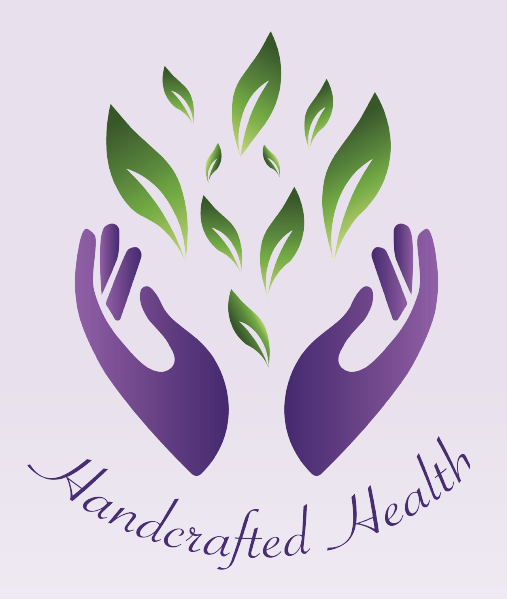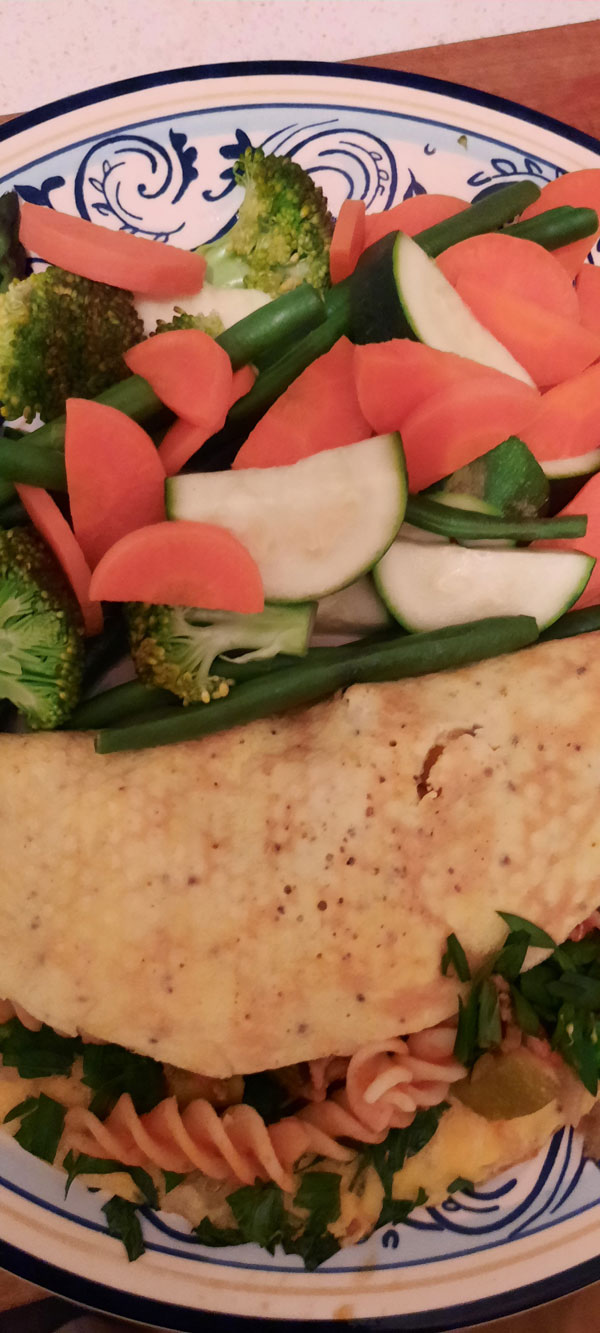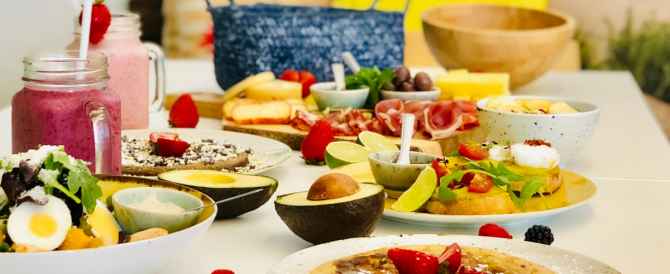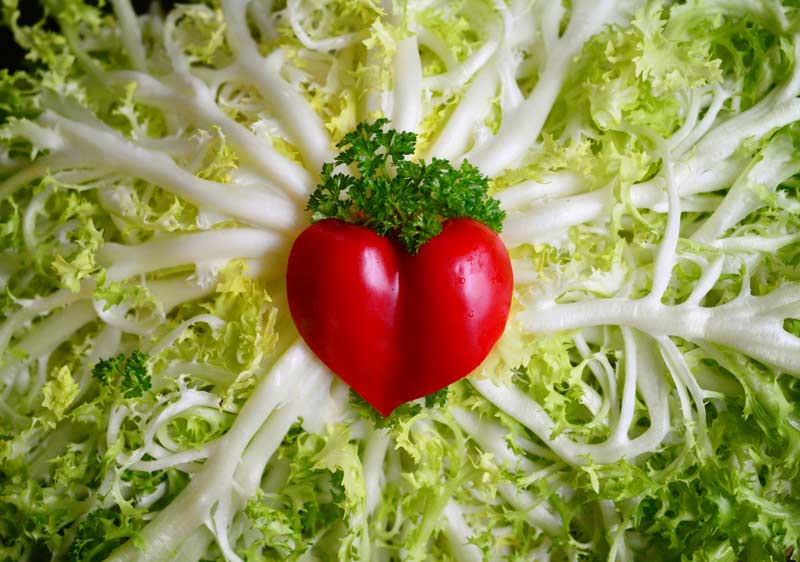What about Eggs for Breakfast?
Eggs are an amazing source of so many things – like a giant vitamin pill! They are a good source of protein, a low in fat with only 1 gm of saturated fat and as well as contain the other nutrients below in the table and also contain trace amounts of Vitamin E, B1, Calcium, Iodine, Biotin, Lecithin and Lutein.
| Nutrient1 | Amount in 1 Egg | What is this good for? |
| Protein | 6.7 mg | Building blocks for muscles, hormones & enzymes |
| Fat | 4.2 mg | Great source of energy |
| Cholesterol | 203 mg | Important for cell membranes, hormones, Vitamin D & bile production |
| Sodium | 72 mg | Needed for electrolyte balance to support nerves & muscles |
| Iron | 0.9 mg | Produces hemoglobin to carry oxygen throughout the body |
| Selenium | 12 mcg | Antioxidant needed for thyroid, reproduction & DNA prodn. |
| Zinc | 0.5 mg | Supports growth, immunity & metabolism |
| Vitamin B12 | 0.8 mcg | Supports brain and nervous system & energy production |
| Vitamin A | 114 mcg | Needed for immunity, reproduction, growth & eye health |
| Folate | 64 mcg | Supports growth, energy production, crucial in pregnancy |
| Vitamin D | 0.8 mcg | Important in immunity, bone health & heart health |
| Choline | 176 mg | Supports memory and brain function, mood, and muscles |
But what about Cholesterol?
Large population studies have found that having too little dietary cholesterol can increase the risk factors for cardiovascular disease (CVD) as much as having too much1,2. Cholesterol is needed for the very important construction of hormones, bile acids used in digestion, and vitamin D, and to maintain the integrity and fluidity of all cell membranes4. Those with high cholesterol may need to consider working on the many factors that can contribute to this and minimise their intake of eggs. However, the consumption of 1 egg daily has not shown to increase our CVD risk and in fact, may be protective2.
Recipe Ideas
Try eggs any way you like – Scrambled, poached, fried, boiled or even add lots of herbs and veggies in an omelette. With a piece of toast – again your choice – sourdough, multigrain, sprouted, wholemeal or gluten-free etc (why not try a new type of bread each week?) Add tomato, avocado and a squeeze of lemon for extra taste and variety.
Eggs on the Run – Another easy snack or breakfast on the run suggestion could be – lining a muffin tin with bacon and crack an egg into it add herbs, tomato and or a sprinkle of cheese and bake. A great snack to pack and eat after exercise.
The 1-Minute Muffin – Add ¼ cup flaxseed meal or LSA, 1 egg, 1 tsp baking powder (I only put 1/2)1 tsp cinnamon, 1 tsp coconut oil, 1 tsp sweetener –honey, molasses, coconut sugar. You can add toasted shredded coconut, protein powder, fruit of your choice – bananas, blueberries. Mix all together in a cup/mug and put in the microwave for 1 minute or in a muffin tin in an oven for 10 – 12 minutes or try using this as a pancake mix and fry in a pan with a little oil and top with ricotta and berries.








0 Comments